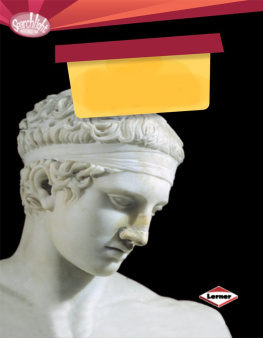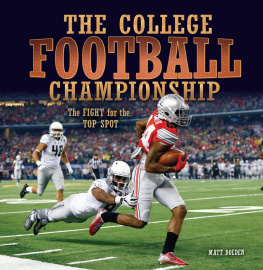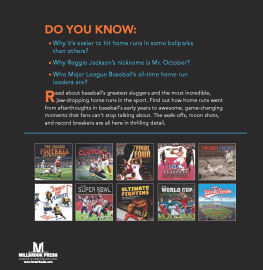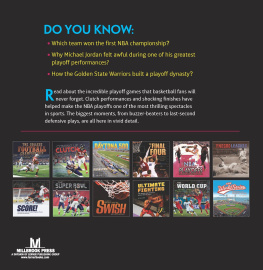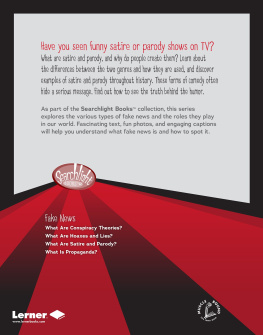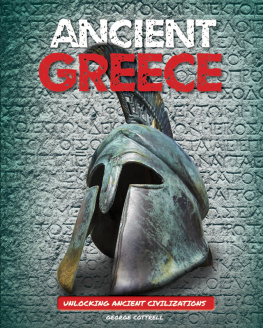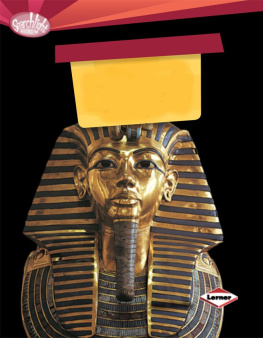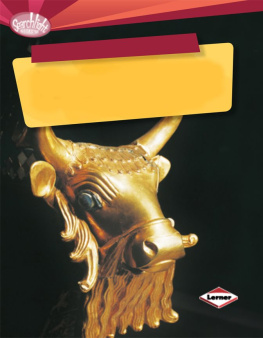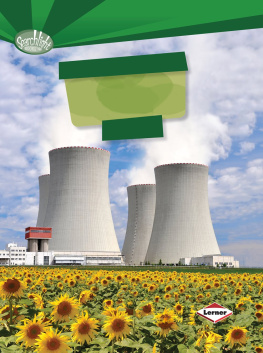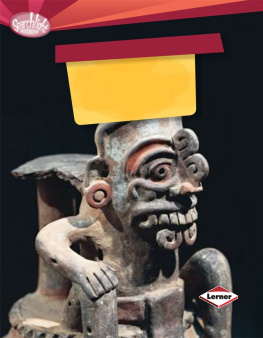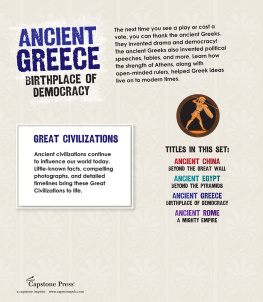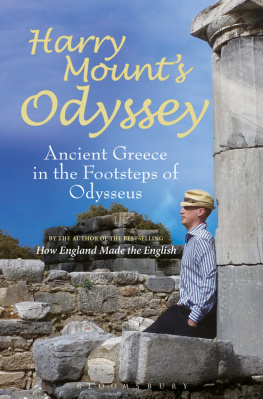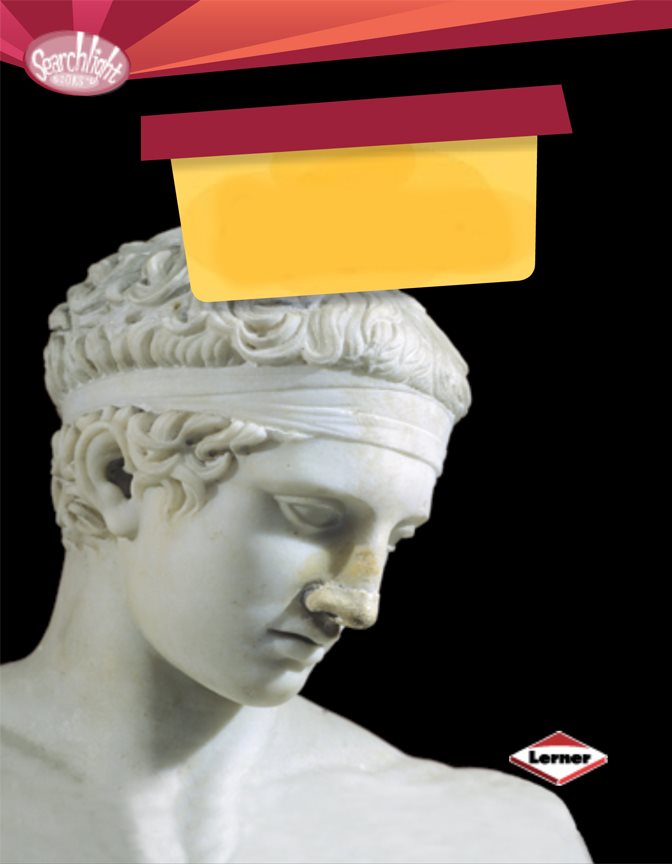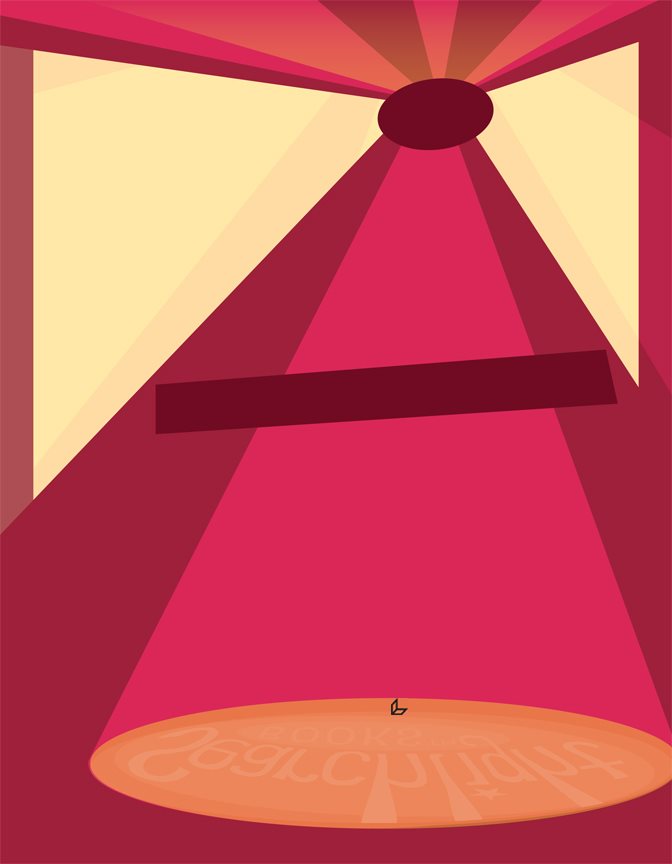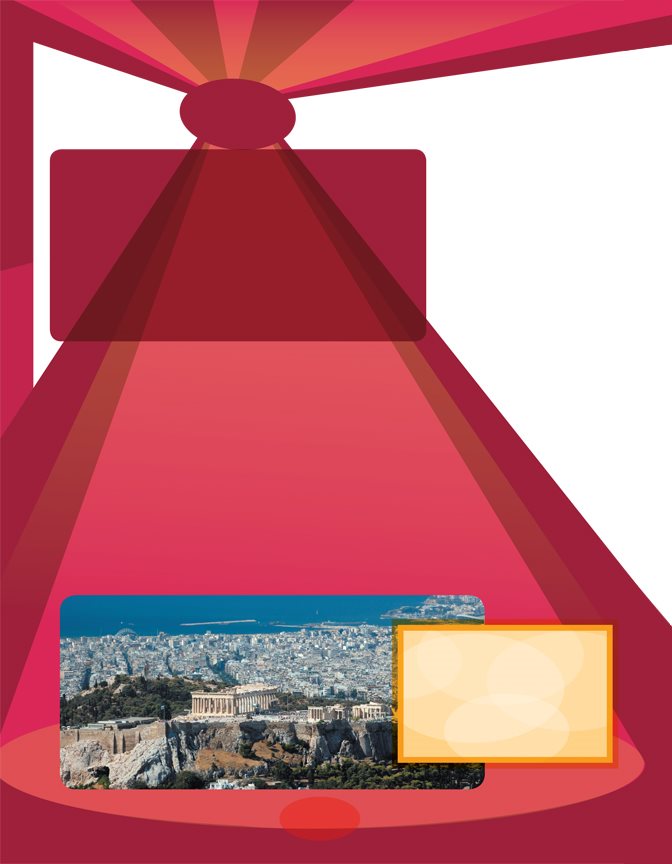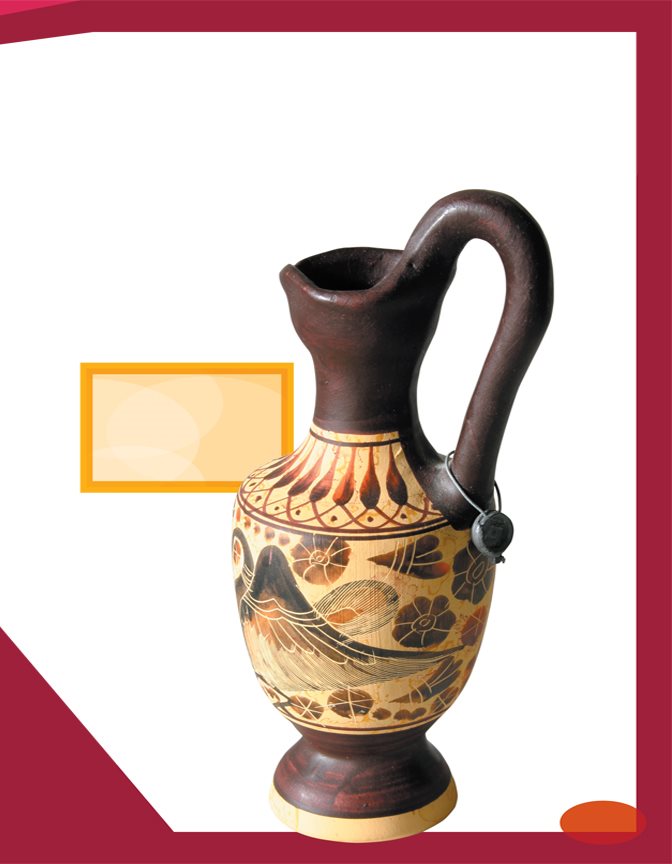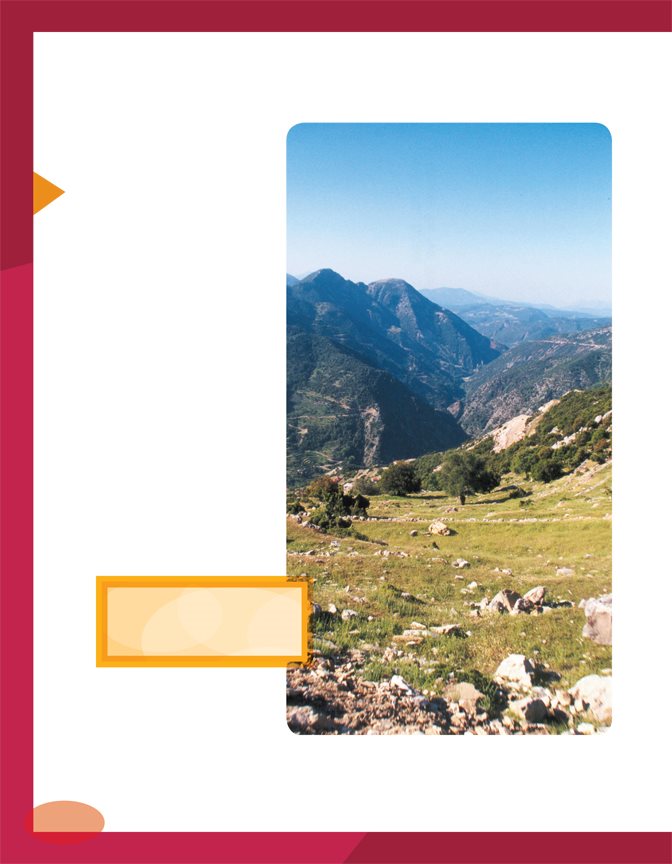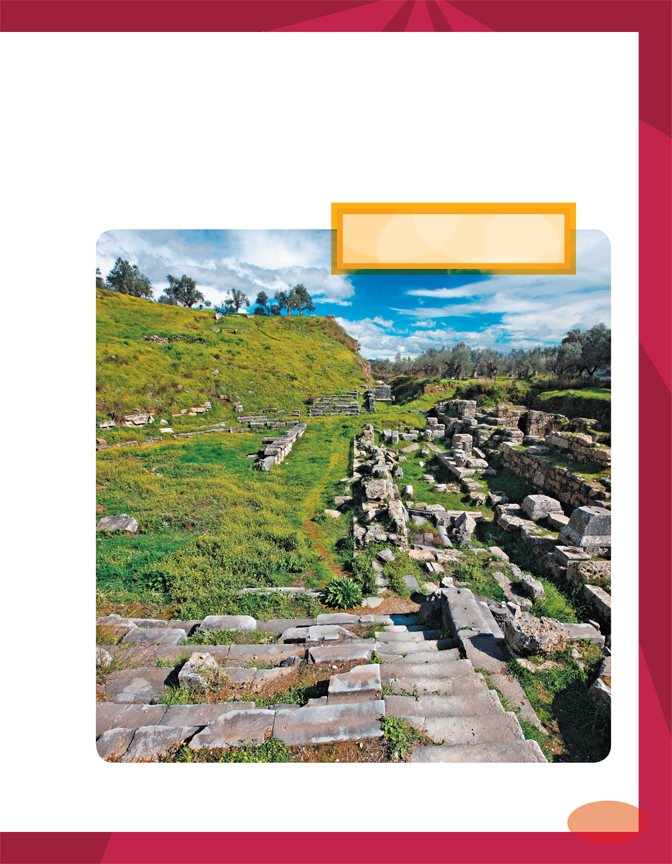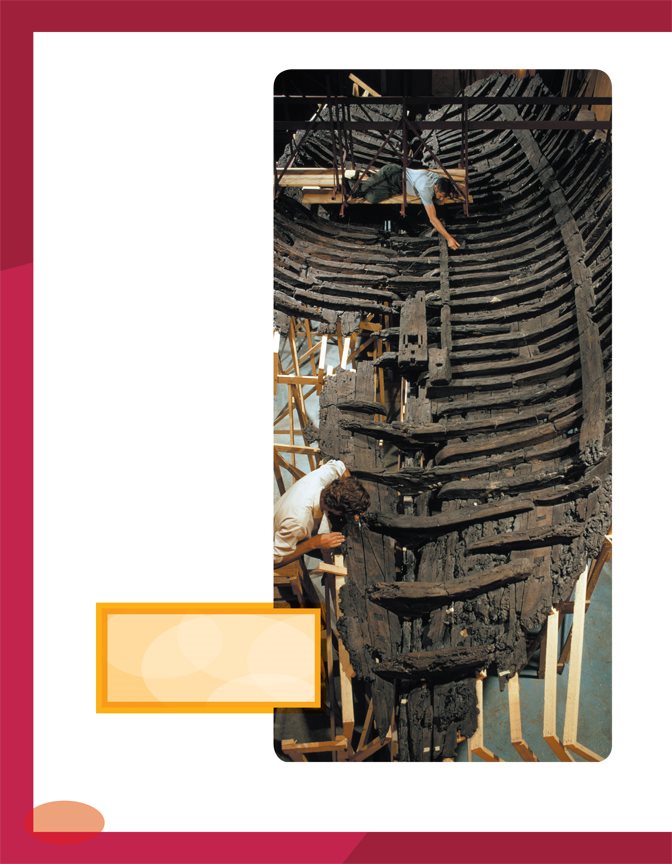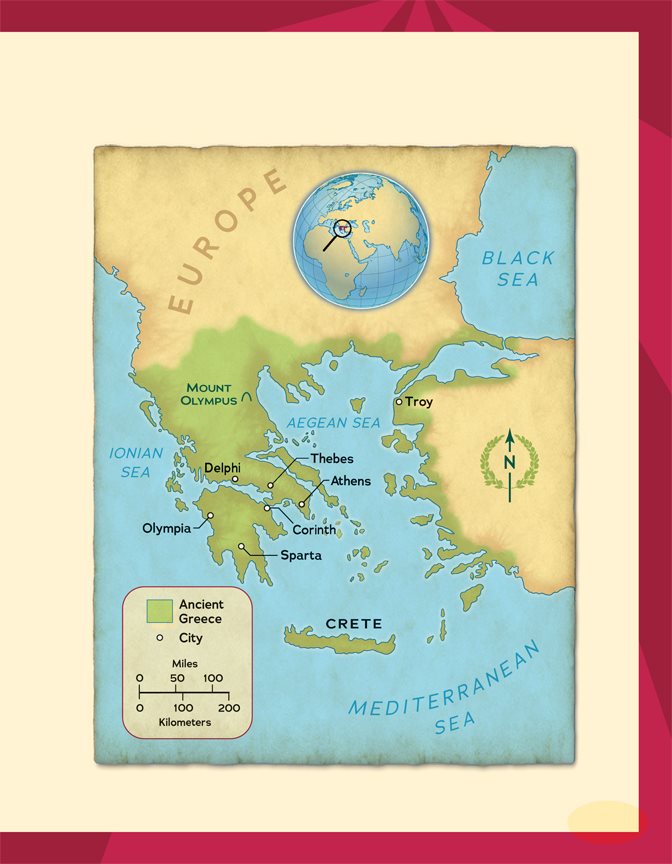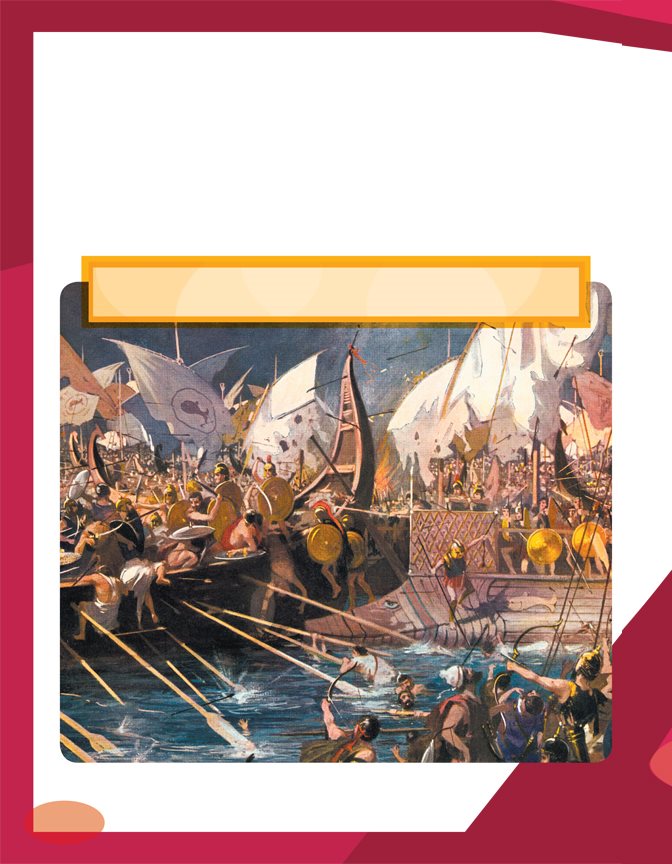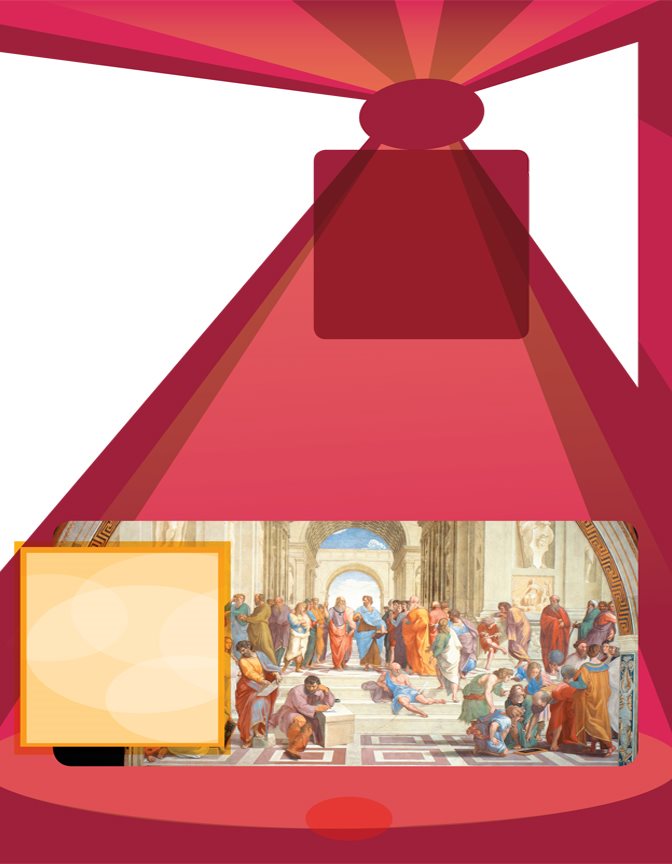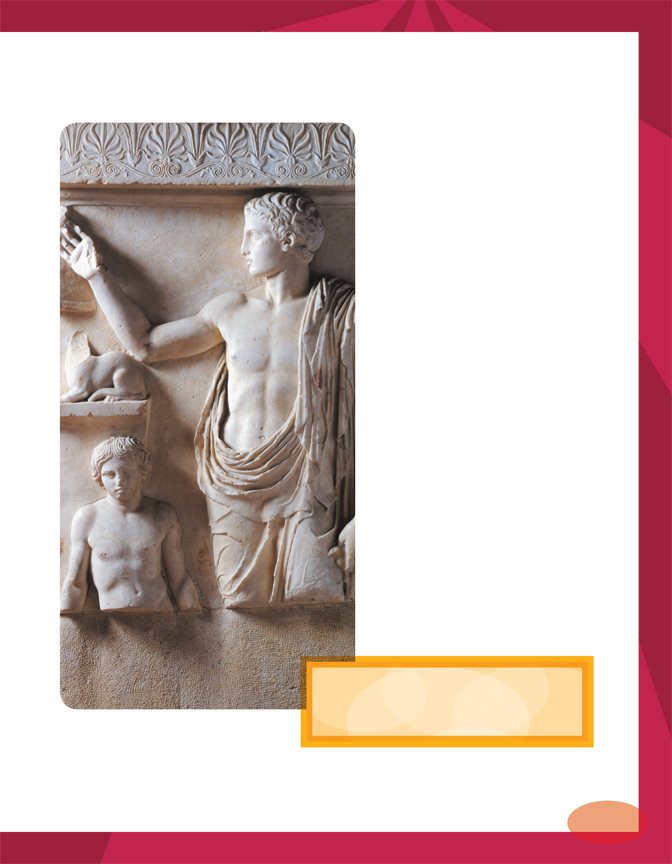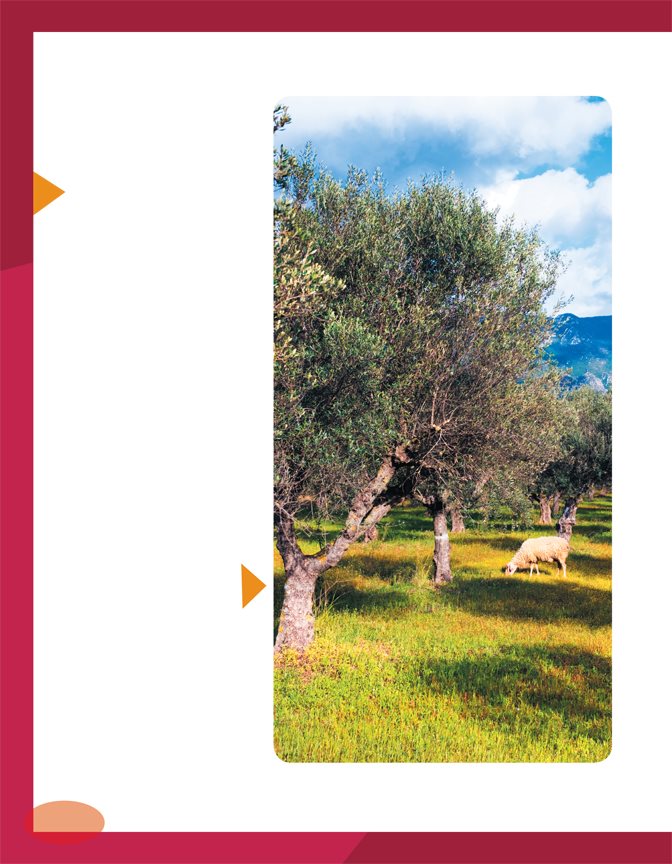Tools and Treasures of
Ancient
Greece
Matt Doeden
What
Can We
Learn from Early
Civilizations?
Tools and Treasures of
Ancient
Greece
Matt Doeden
Lerner Publications Company
Minneapolis
Copyright 2014 by Lerner Publishing Group, Inc
All rights reserved. International copyright secured. No part of this book may be
reproduced, stored in a retrieval system, or transmitted in any form or by any means
electronic, mechanical, photocopying, recording, or otherwisewithout the prior written
permission of Lerner Publishing Group, Inc., except for the inclusion of brief quotations in
an acknowledged review.
Lerner Publications Company
A division of Lerner Publishing Group, Inc.
241 First Avenue North
Minneapolis, MN 55401 U.S.A.
For reading levels and more information, look up this title at www.lernerbooks.com.
Library of Congress Cataloging-in-Publication Data
Doeden, Matt.
Tools and treasures of ancient Greece / by Matt Doeden.
pages cm. (Searchlight books : what can we learn from early civilizations?)
Includes index.
ISBN 9781467714303 (lib. bdg. : alk. paper)
ISBN 9781467725064 (eBook)
1. GreeceCivilizationTo 146 BCEJuvenile literature. 2. GreeceJuvenile
literature. I. Title.
DF77.D66 2014
938dc23
2013017735
Manufactured in the United States of America
1 PC 12/31/13
Contents
THE ANCIENT
GREEKS
THE CULTURE OF ANCIENT
GREECE
Chapter
THE ANCIENT
GREEKS
More than twenty- five hundred
years ago, ancient Greece was
becoming a great civilization. The
ancient Greeks had gifted artists, deadly
warriors, and great thinkers. They also had
an unusual government. It was the worlds
first real democracy. In a democracy, free people
get to vote on their leaders and many of their laws.
Athens is the capital
city of modern- day
Greece. Ancient Athens
was the birthplace of
democracy. What is a
democracy?
Ancient Greece changed the world. It shaped many
cultures that followed it. The Greeks left behind all sorts
of useful tools and amazing treasures.
Beautiful art is
just one of many
treasures to come
from ancient
Greece.
Rugged Land
Ancient Greece
was in southeastern
Europe. It sat
on the tip of the
Balkan Peninsula.
This part of Europe
sticks out into the
Mediterranean Sea.
The land is rough
and covered with
mountains.
Greeces rocky land
once made farming and
traveling difficult.
Greece was made up of many city- state. Each
city- state had its own leaders and laws. Two of the
largest city- states were Athens and Sparta.
These ruins were once a
large theater in Sparta.
Early in Greek
history, people
rarely visited
other city- states.
Traveling on foot
or horseback was
hard. But Greece
was surrounded
on three sides
by water. Many
Greeks were
expert sailors and
traveled by sea.
These people are
restoring an ancient
Greek trading ship so it
will look new again.
Ancient Greece
Around BCE, Persia tried to take over Greece.
The city- states joined together to defend themselves.
They held back the Persian army. The city- states also
formed a common culture. Thats how the golden age of
ancient Greece began.
The Greeks defeated the Persians in the Battle of Salamis
in BCE. This painting from the 1900s shows the battle.
Chapter
DAILY
LIFE
Free Greek men spent most
of their time in public. They
gathered to talk about art and
science. They voted on laws. They
threw parties and went to the theater.
Ancient Greeks
often met to
share ideas. This
painting from the
1500s shows how
their meetings
might have looked.
What topics did
Greek men discuss?
Most Greek women werent allowed to join these
activities. They stayed home. They did housework and
raised children. Some couldnt even go outside! But
women in Sparta had more rights. They studied the
arts. They played sports. They even helped the men run
Spartas government.
Greek women stayed in their houses. This
woman is putting clothes into a large chest.
Some men and
women were slaves.
They worked in the
homes of free Greeks.
They cooked, made
clothes, and did other
chores. Slaves had
little control over their
lives. They had to do
whatever their owners
told them. And slaves
got no pay. Some
Greeks treated their
slaves very harshly.
Young warriors in Sparta
killed slaves as part of
their training.
Some slaves were children. This
work of art shows a young slave
(LEFT) and his owner (RIGHT).
Work
Many ancient
Greeks were
farmers. They
grew wheat,
barley, olives,
figs, grapes, and
more. Farmers

